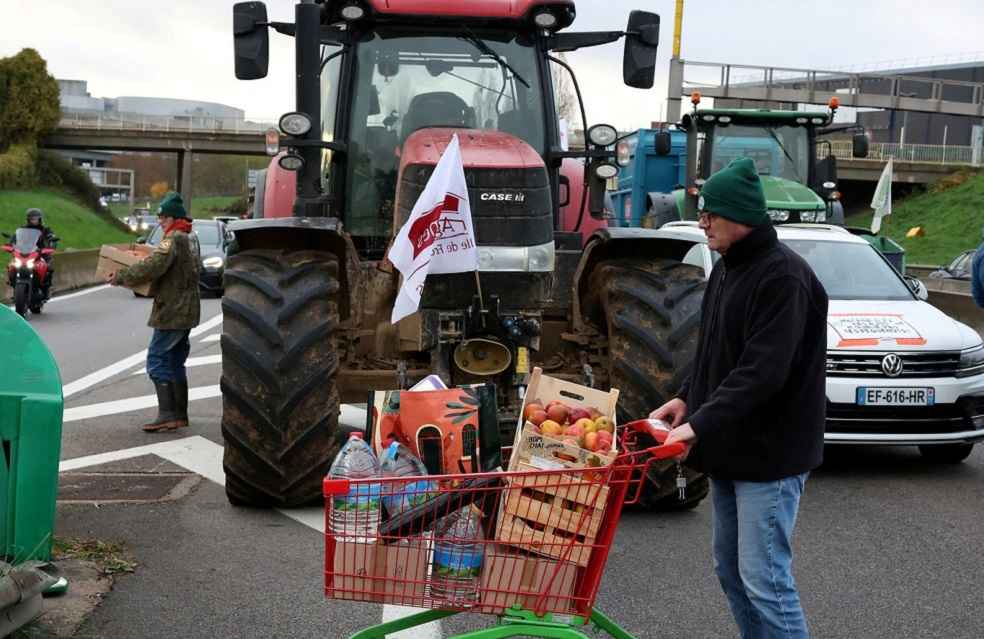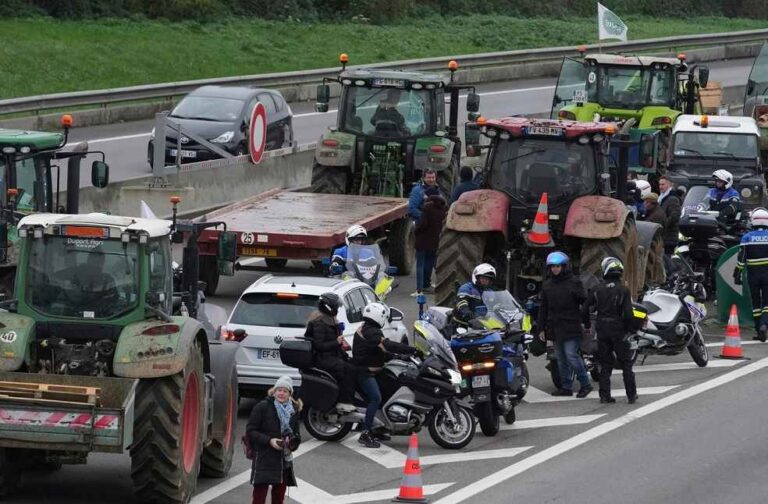French farmers escalated their protests against the European Union-Mercosur trade agreement on Monday, citing concerns over unfair competition and risks to their livelihoods. The agreement, aimed at bolstering trade between Europe and South America, has triggered widespread demonstrations as farmers argue it could overwhelm the French market with South American agricultural imports that do not meet stringent EU environmental and health standards.
In Beauvais, northern France, around 50 tractors blocked traffic, and protesters barricaded a government office with manure and tires. Later, they moved to the local prefecture, setting up a noisy camp. Similar demonstrations occurred across the country, with vine stem burnings in Bordeaux and blockades of major routes like the Europe Bridge in Strasbourg. Over 85 protests were reported nationwide.

Farmers fear the agreement could allow duty-free imports of beef, poultry, and sugar, produced using methods such as hormone treatments and genetically modified organisms (GMOs), undermining local agriculture and threatening smaller farms already struggling financially.
The deal, originally agreed upon in 2019 between the EU and the Mercosur bloc—comprising Brazil, Argentina, Paraguay, Uruguay, and Bolivia—has faced persistent opposition in France. Farmers and unions argue it adds to existing burdens like stringent regulations, excessive paperwork, and insufficient government support.
While supporters tout the agreement’s potential to boost European exports of machinery, chemicals, and cars and strengthen economic ties with South America, critics remain sceptical. French Agriculture Minister Annie Genevard has raised concerns about deforestation and health risks linked to hormone-treated meat. President Emmanuel Macron has also insisted the deal should only proceed if South American producers meet EU standards.

Despite resistance, there is growing speculation the agreement could be finalised at the G20 Summit in Brazil or in the near future. Without veto power, France faces challenges as nations like Germany and Spain push for the deal, citing broader economic benefits.
French farmers aim to pressure their government and EU officials to block or renegotiate the agreement to ensure their interests are protected. They have pledged to continue their protests, warning of further disruptions, including food freight blockades, to amplify their demands.
TRADE WORLD | China’s Plastics Glut Poses New Global Challenges



